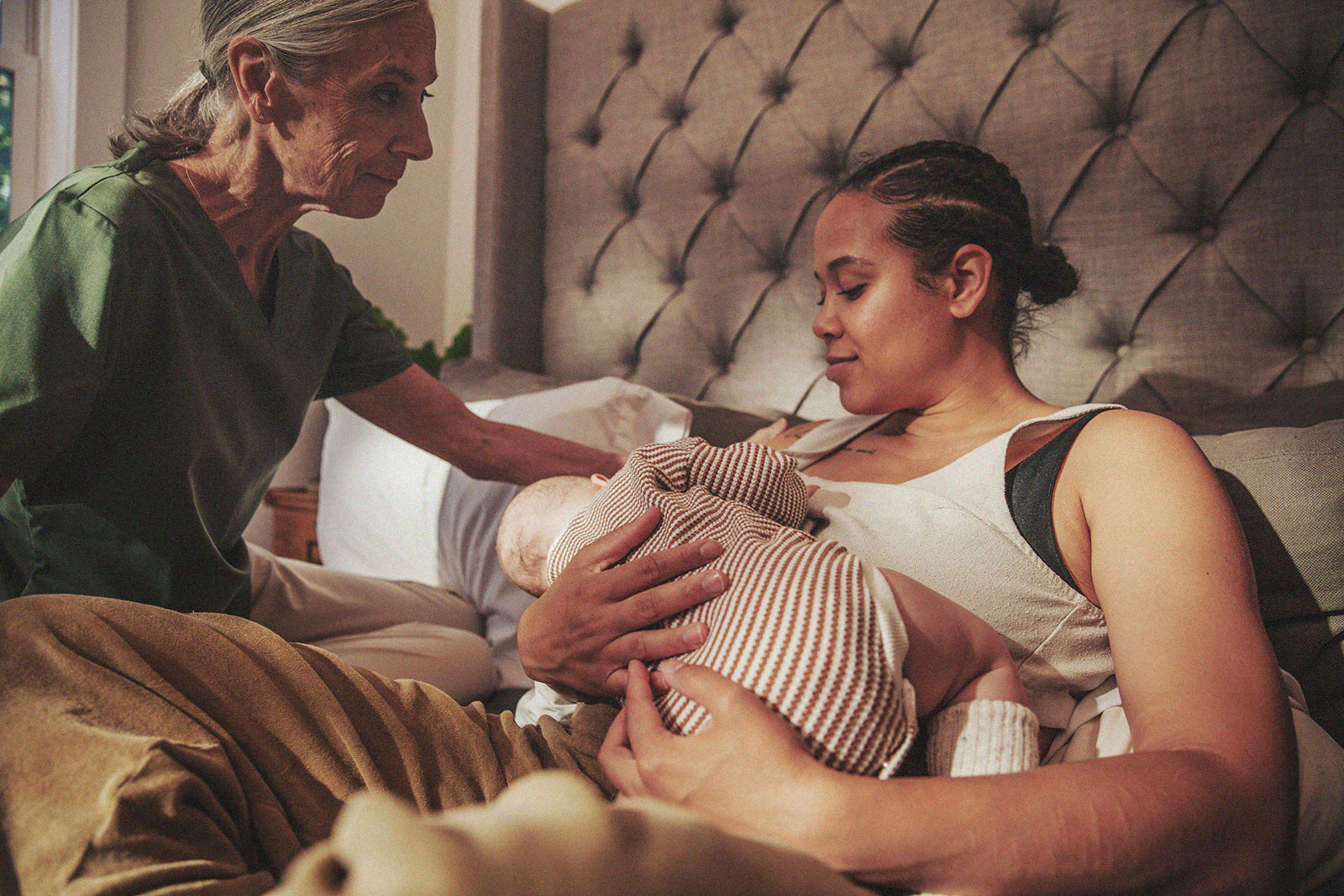Intrusive postpartum thoughts & mental health: What’s normal & when to seek help
Postpartum can be a wild ride. Your body, mind, and emotions are shifting constantly, and there’s no one-size-fits-all experience. Some new parents feel a euphoric love from day one, while others find themselves navigating unexpected waves of sadness, anxiety, or intrusive thoughts postpartum. Both experiences can be normal.
But how do you know when it’s something more? When should you reach out for help? The Lactation Network is passionate about helping parents get through postpartum ups, downs, and everything in between. The information below can help you understand what’s typical and when it might be time to seek additional support for yourself or a loved one.
Baby blues vs PPD
The “baby blues” are common — about 80% of new parents experience them. You might feel teary for no reason, irritable, or just off. But baby blues tend to peak around day four or five postpartum and resolve within two weeks.
Postpartum depression (PPD) is different than baby blues. It’s a persistent, heavy fog that can make you feel disconnected from your baby, overwhelmed by guilt, or like you’re failing. PPD can also show up as rage, numbness, or extreme anxiety.
If your postpartum depression, intrusive thoughts or other symptoms linger beyond two weeks, worsen, or make it hard to function, it’s time to seek support.
How an IBCLC can support you beyond breastfeeding
International Board Certified Lactation Consultants (IBCLCs) do much more than just troubleshoot latch issues. IBCLCs spend time with new parents in some of their most vulnerable moments, and they’re trained to recognize when something seems off.
While an IBCLC cannot diagnose patients, they can help you identify when your emotions or mental state may need professional attention and refer out to the appropriate provider and connect you with resources. If breastfeeding feels overwhelming, triggering, or impossible due to postpartum mental health, as the only medical professionals that focus on both mother and baby, IBCLCs can help navigate feeding solutions that support both you and your baby creating a harmonious feeding relationship.
The postpartum mental health spectrum
Postpartum mental health conditions exist on a spectrum, and they don’t always look like what you expect. Here’s a breakdown of common ones:
Postpartum Anxiety (PPA)
Common PPA symptoms include:
- Constant worrying, often about baby’s safety
- Racing thoughts, inability to relax
- Physical symptoms like nausea, dizziness, or rapid heartbeat
- Difficulty sleeping even when baby is asleep
When to seek help: If your worries are relentless, irrational, or preventing you from functioning, reach out to a healthcare provider.
Postpartum Obsessive-Compulsive Disorder (PPOCD)
Common PPOCD symptoms are:
- Intrusive, unwanted thoughts (often about harm coming to baby)
- Compulsions or rituals to “prevent” bad things from happening
- Extreme distress over these thoughts
When to seek help: If these thoughts feel overwhelming, repetitive, or are interfering with daily life, seek support immediately.
Postpartum Depression (PPD)
Common PPD symptoms include:
- Persistent sadness, numbness, or hopelessness
- Irritability or unexplained rage
- Loss of interest in things you used to enjoy
- Feeling like your baby would be better off without you
When to seek help: If you have thoughts of self-harm, harming your baby, or feel unable to function, seek immediate professional help.
Postpartum Psychosis (PPP) (RARE, but critical and should be taken seriously)
Common PPP symptoms are:
- Hallucinations or delusions
- Extreme paranoia or confusion
- Disconnection from reality
When to seek help: Immediately. Postpartum psychosis is a medical emergency and requires urgent care.
Most importantly, it’s critical to know that you’re not alone and that seeking help is a sign of strength. Postpartum mental health struggles are common, treatable, and not a reflection of your ability to parent.
If something feels off for you or your partner, family or friend, trust yourself and reach out. Whether it’s your IBCLC, OB-GYN, midwife, therapist, or a trusted friend, there is mental health support available. Parenting is a marathon, not a sprint — and you deserve to feel strong, supported, and healthy along the way!
We know what early parenthood is like, and we’ve been there—searching for countless, often conflicting answers online. At The Lactation Network, our International Board Certified Lactation Consultants (IBCLCs) are committed to providing families with trusted, authoritative information about your prenatal-to-weaning journey.
The information in this article is for informational and educational purposes only and is not intended or implied to be a substitute for professional medical advice, diagnosis, or treatment. The content is made available with the understanding that The Lactation Network is not providing professional medical advice on a particular matter. Every family, parent, and care plan is unique—your MD and IBCLC can work with you to ensure you receive the evidence-based, personalized clinical care you deserve. Always consult your clinical team for medical guidance.
We’re here for you, every step of the way. We work with your insurance to provide in-home, in-office, or telehealth visits with an IBCLC.




